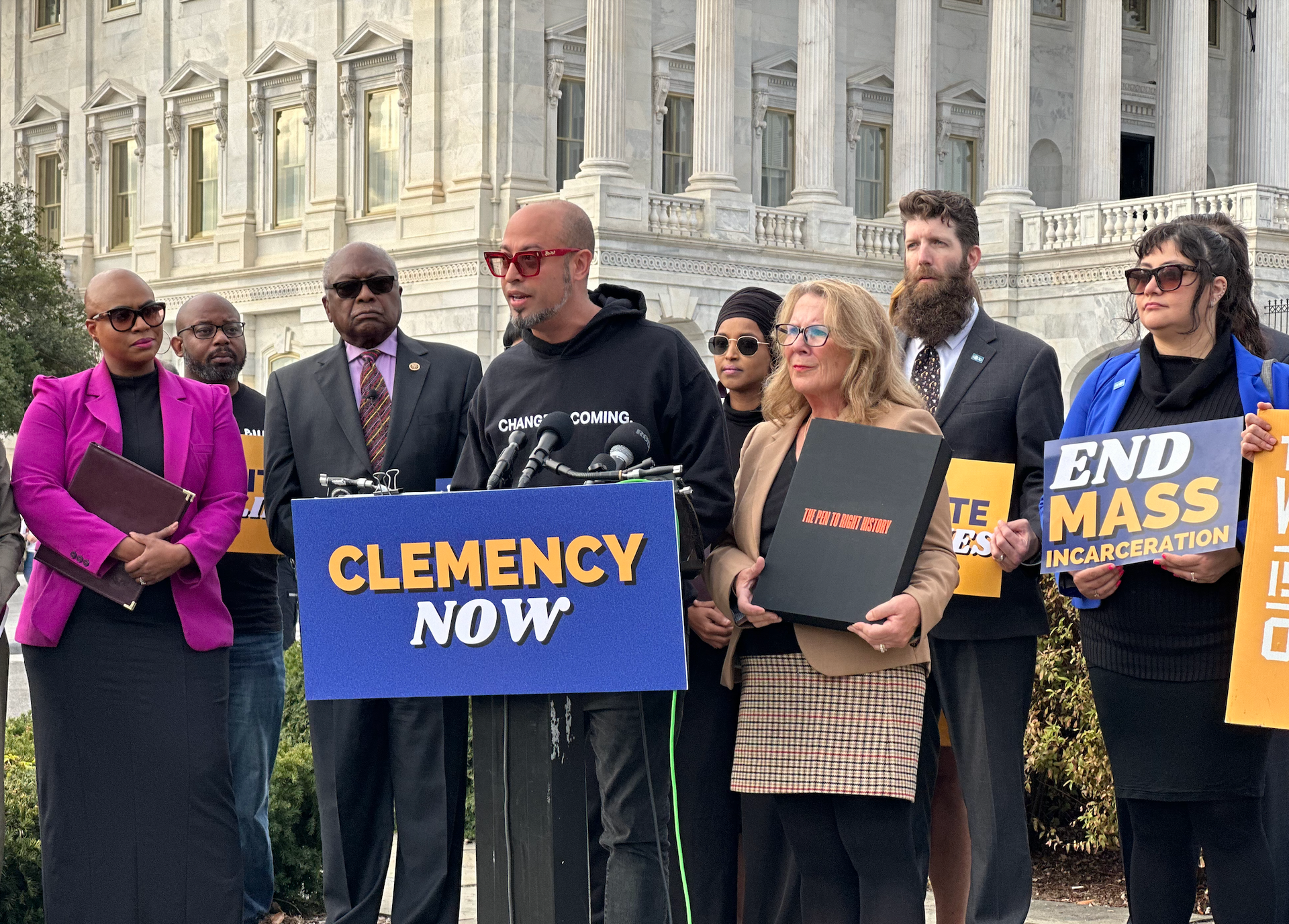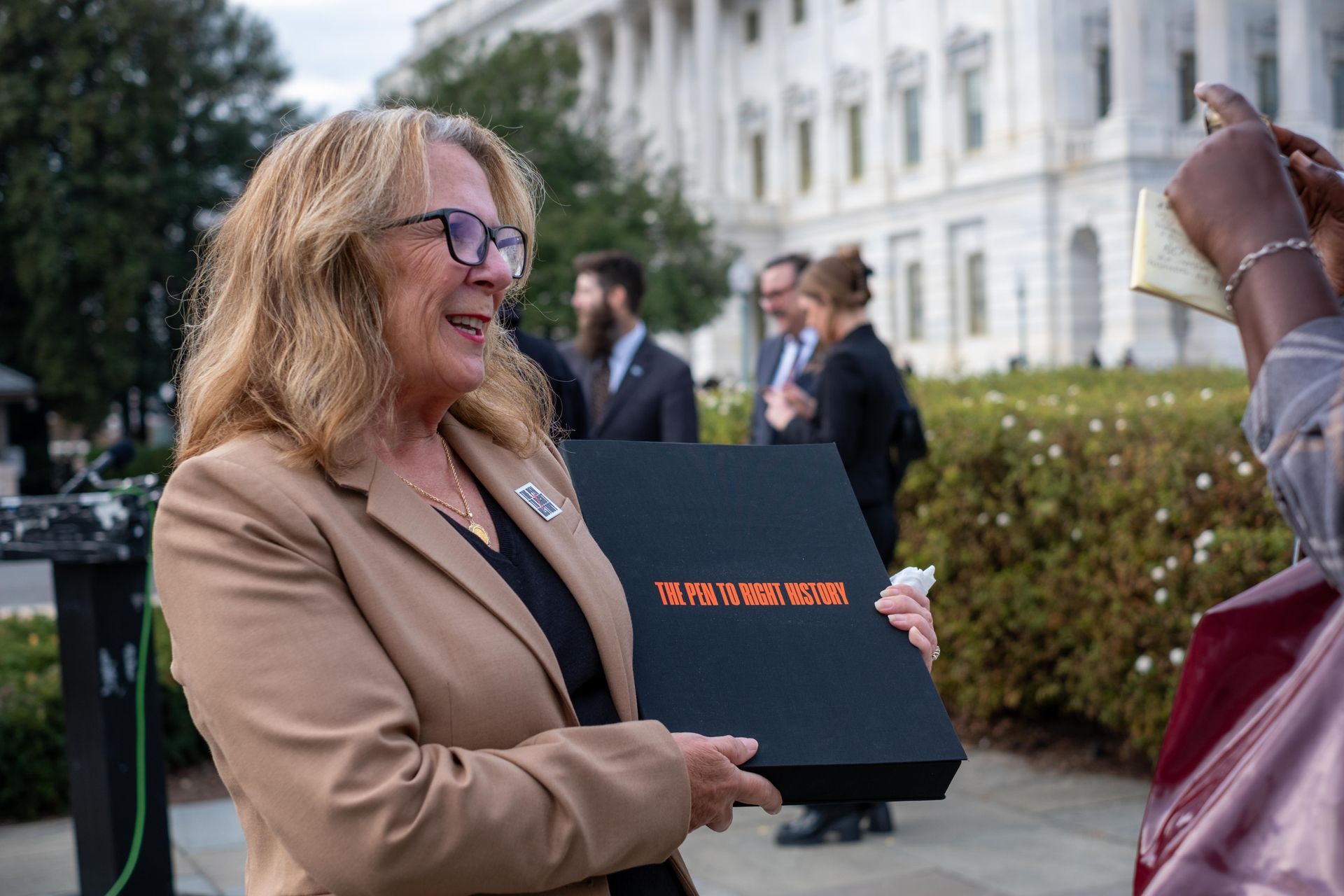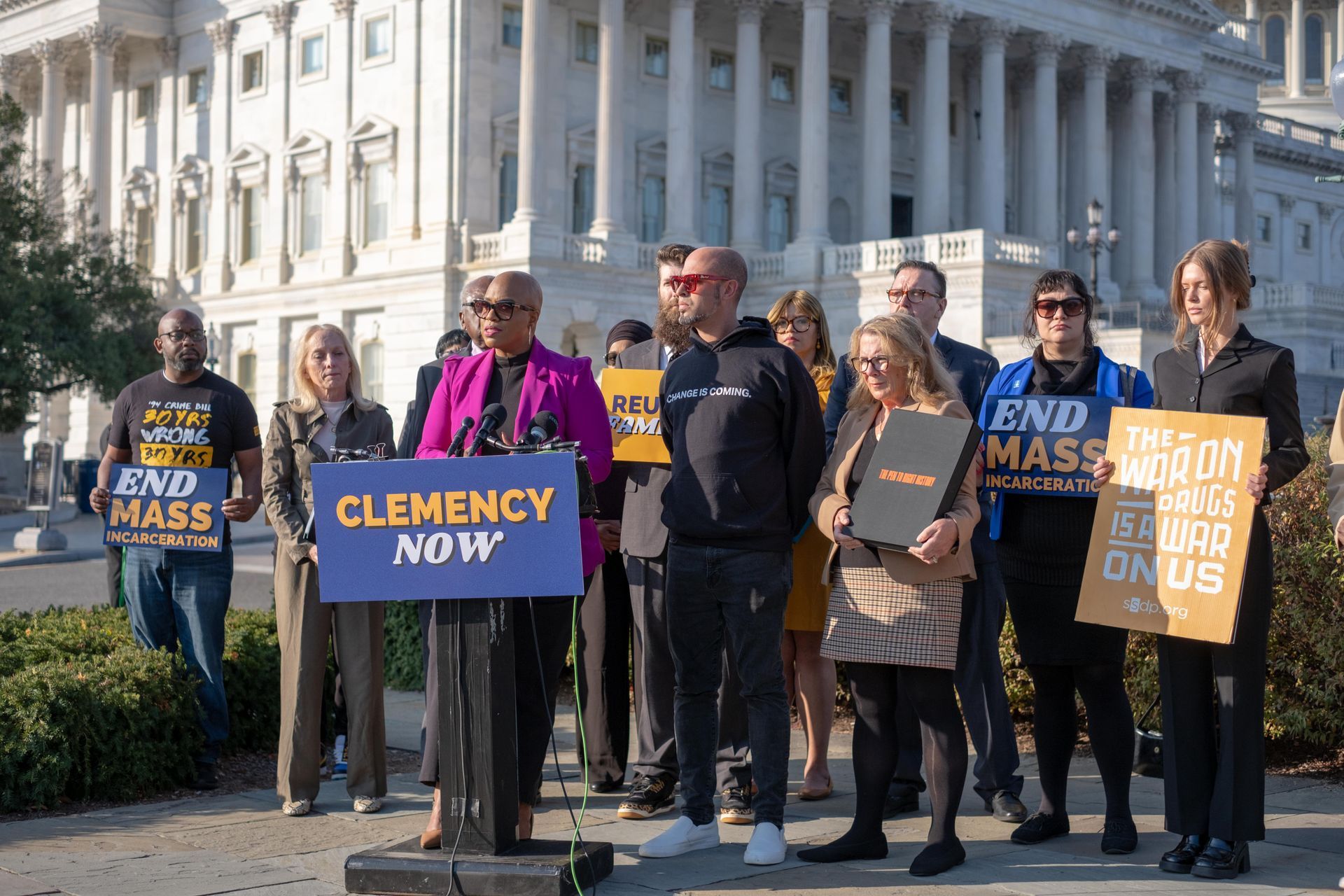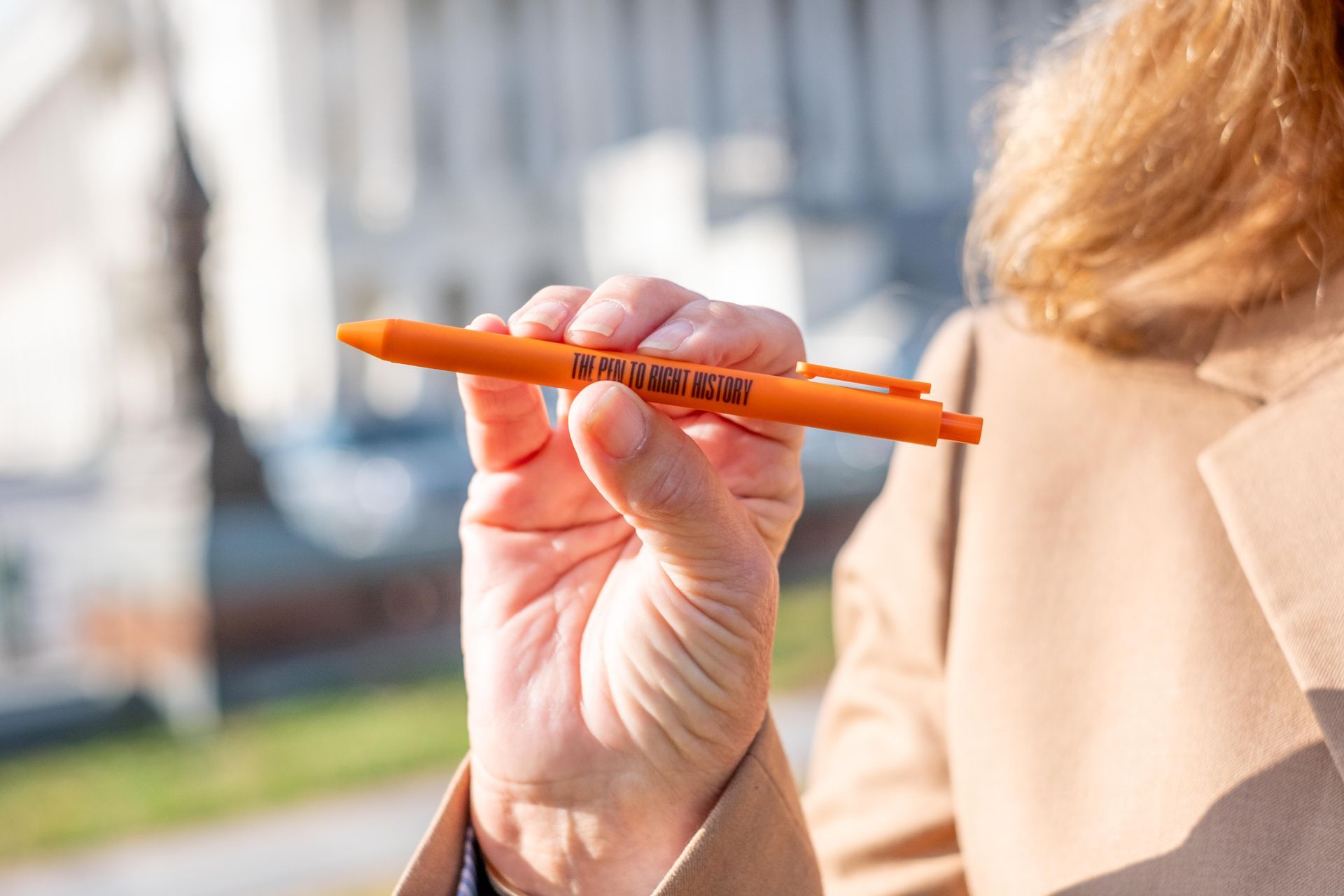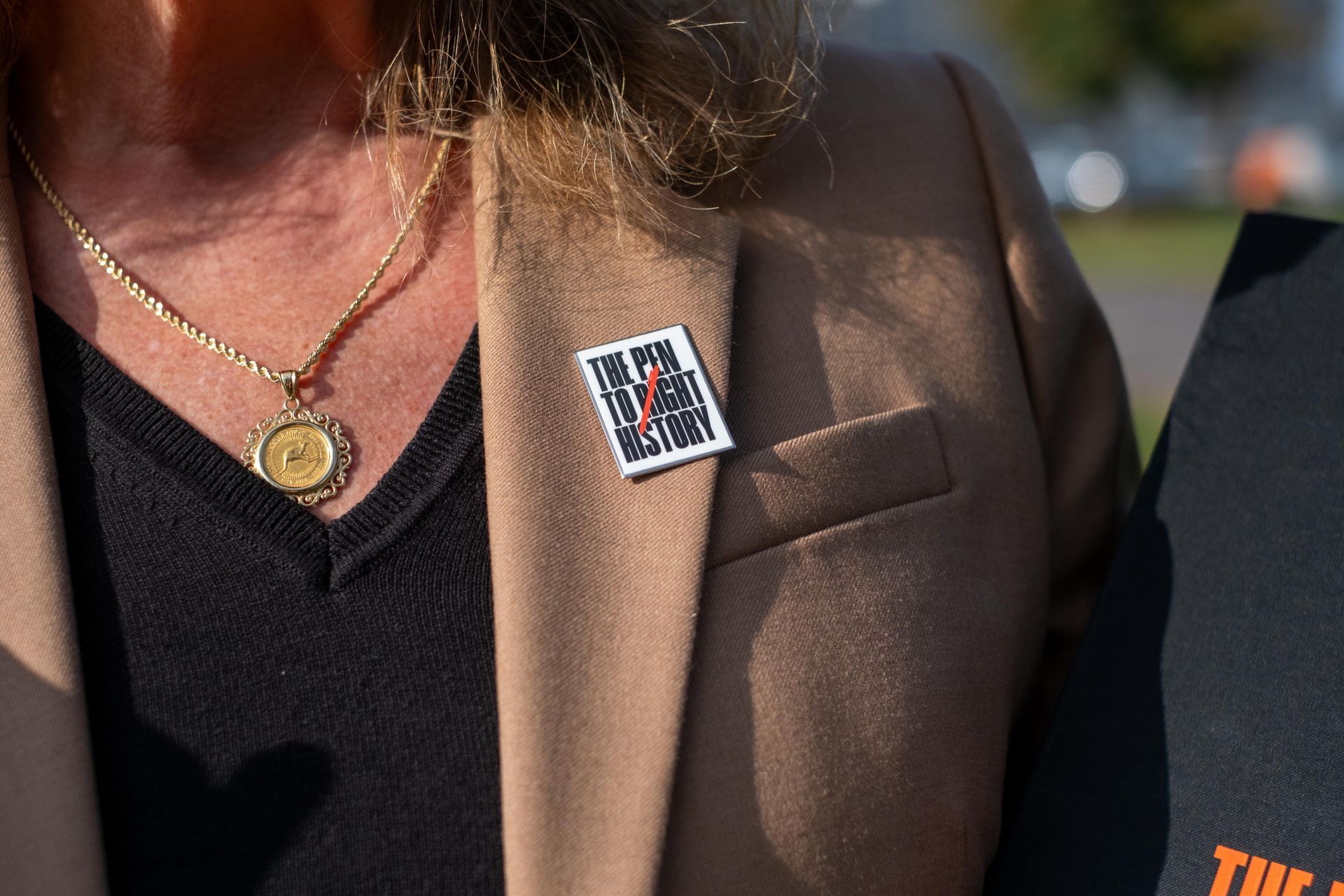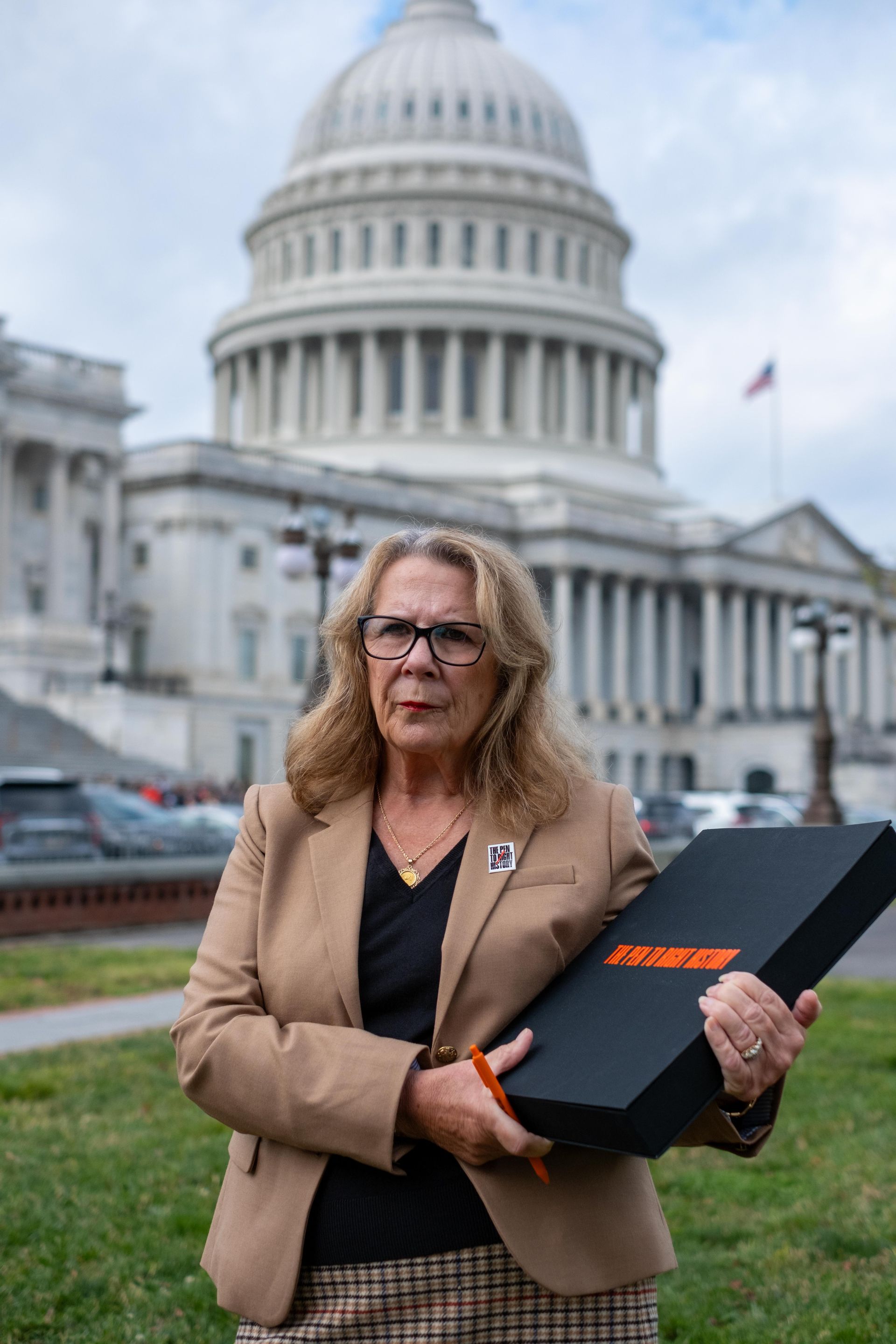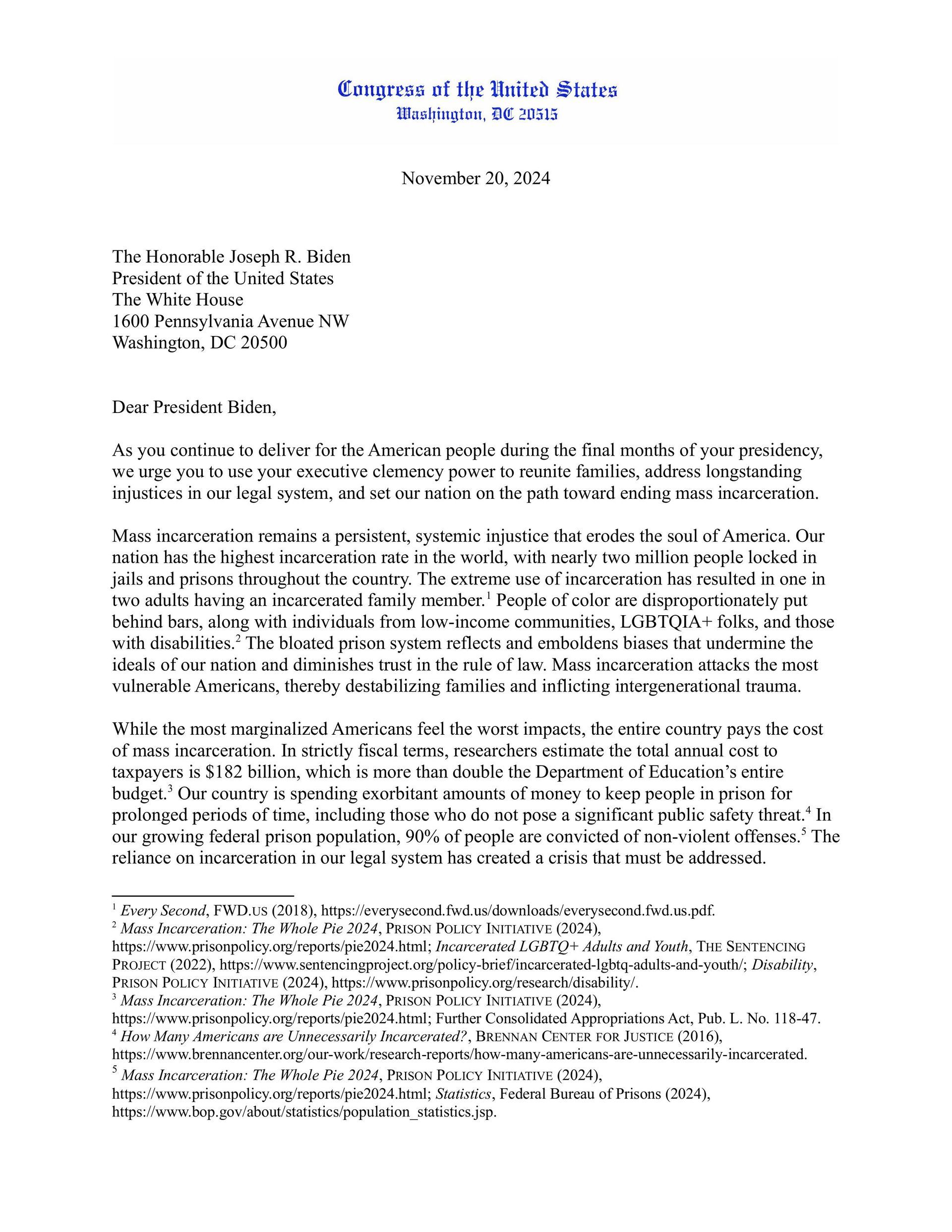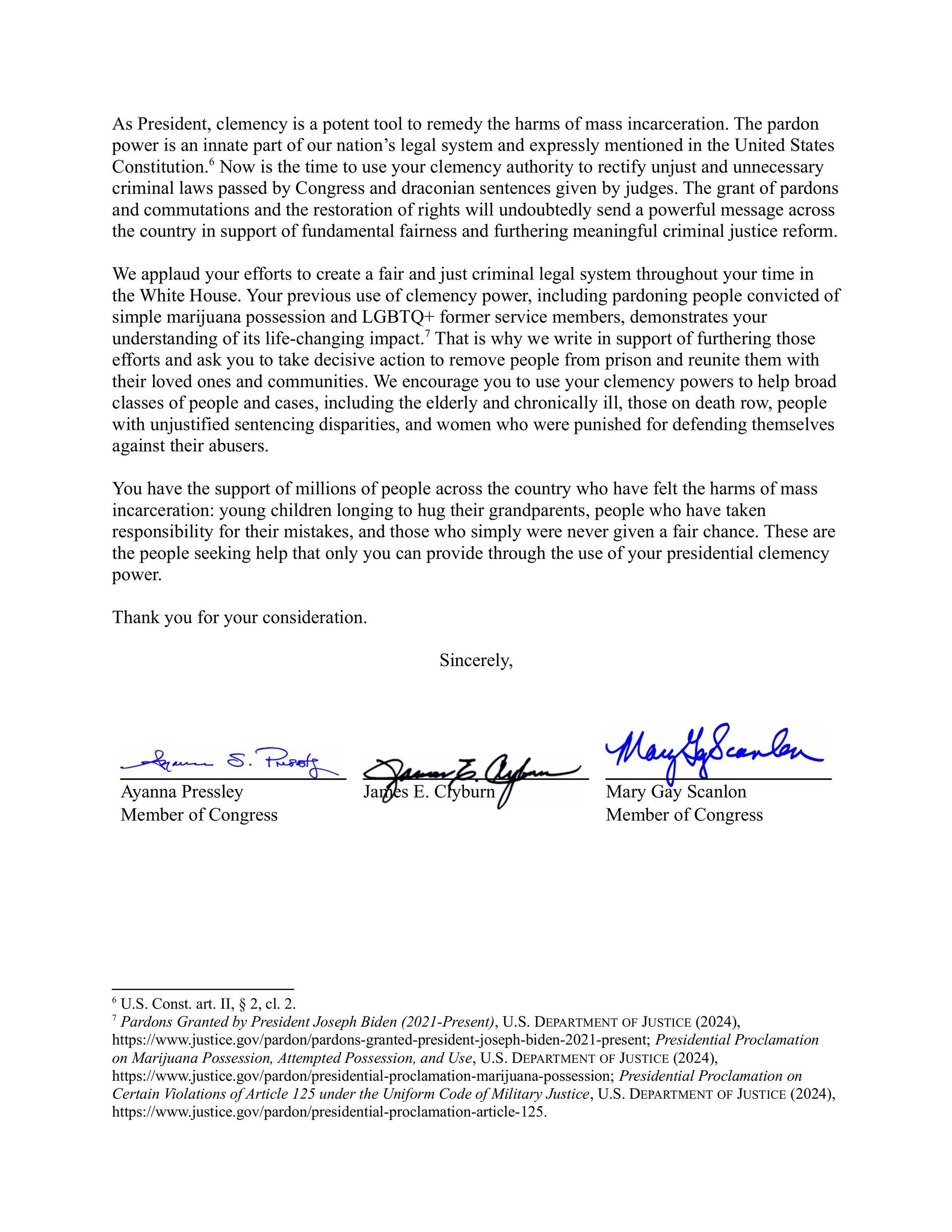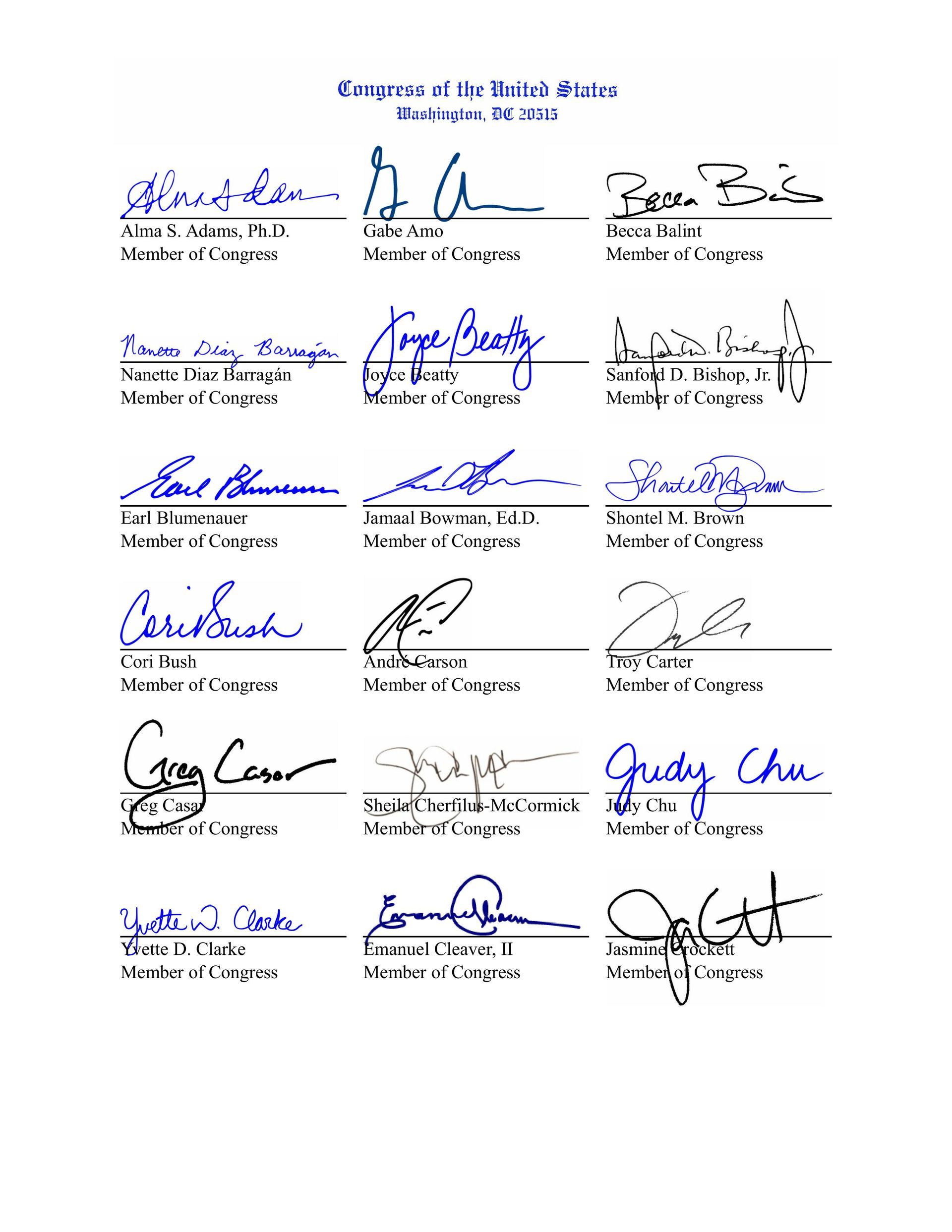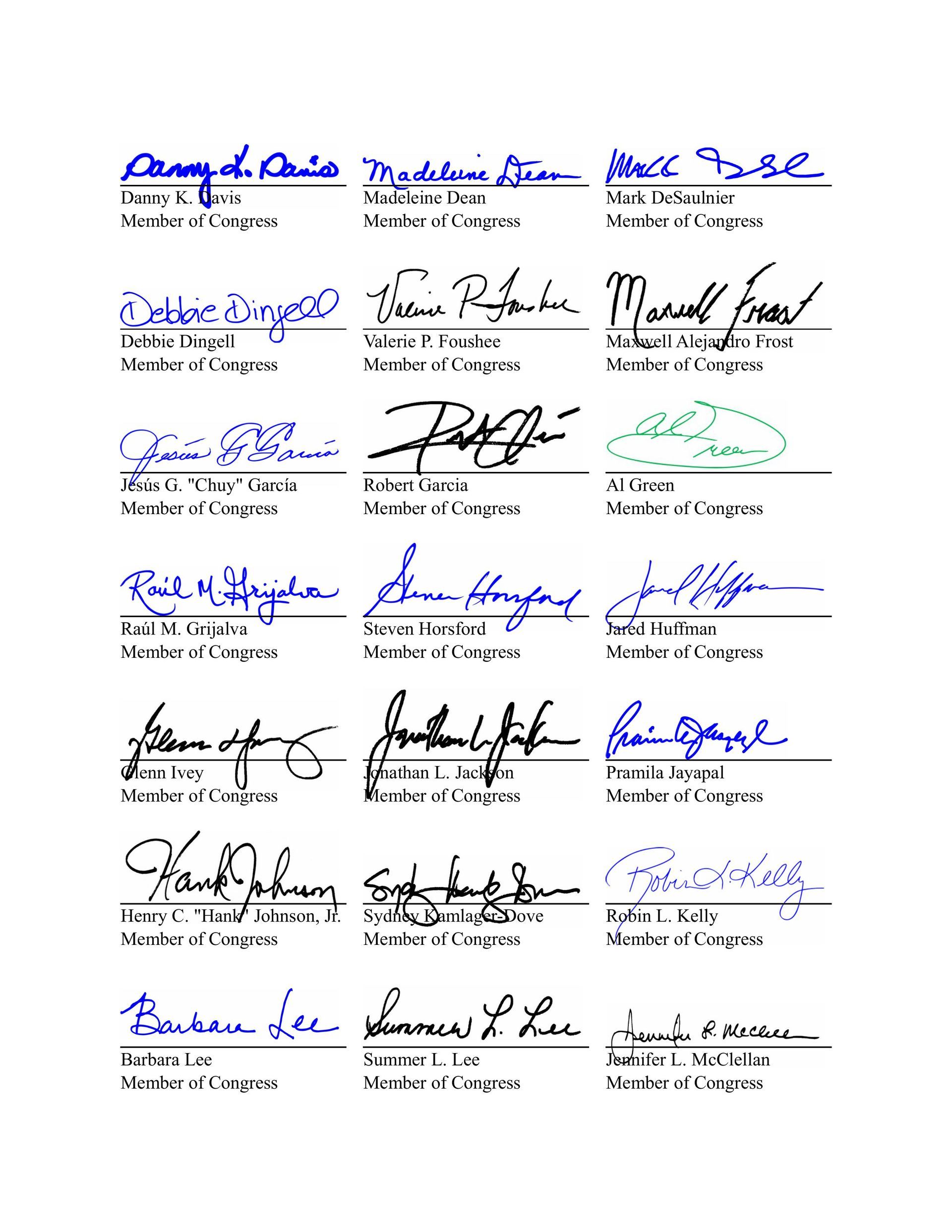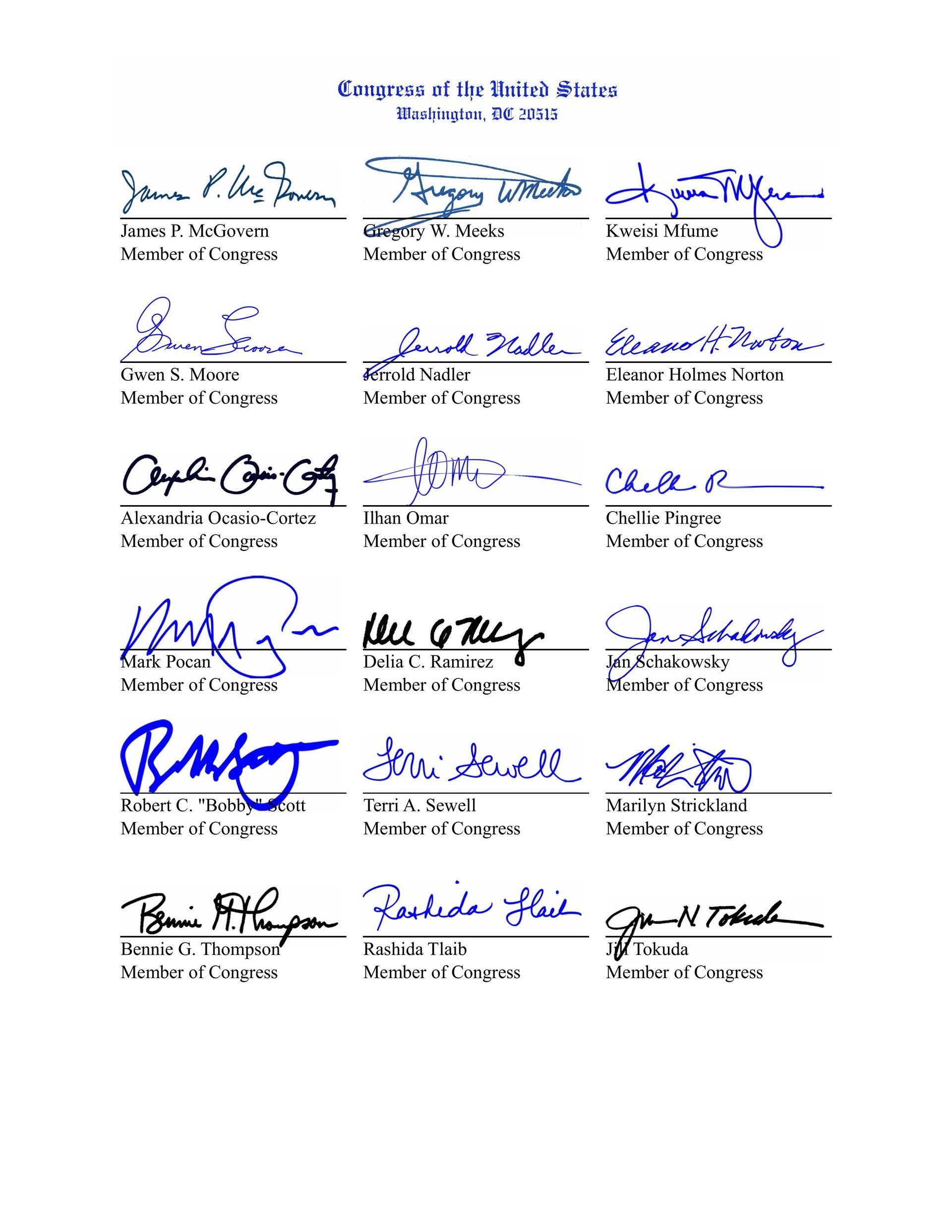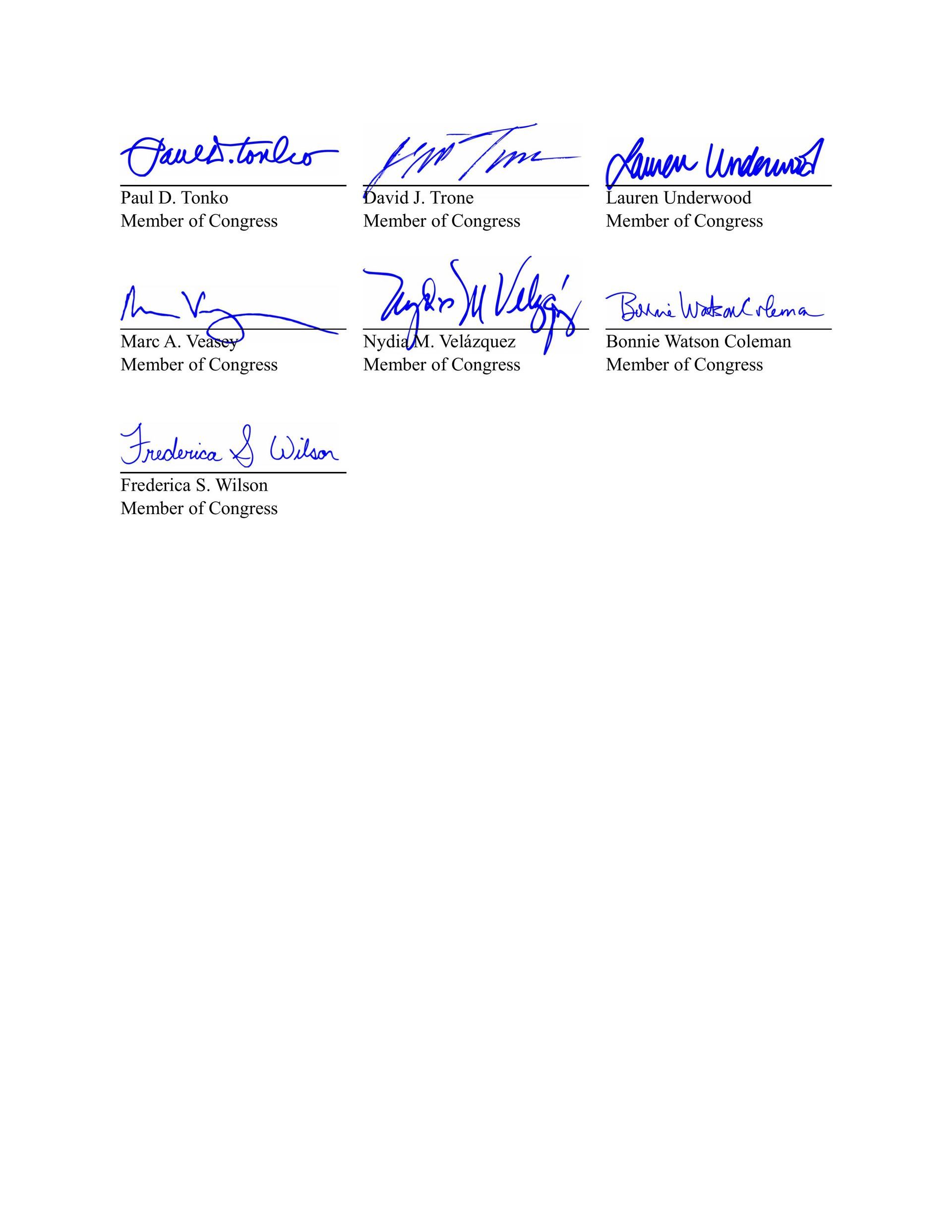Last Prisoner Project Joins 50+ Congressmembers in Joint Letter Urging President Biden to Invoke Clemency Powers
Full video of the press conference is available on CSPAN here and photos are available here.
Washington D.C., November 20 - Today at the
U.S. Capitol alongside justice reform advocates, the formerly incarcerated, and their families,
Last Prisoner Project joined
Rep. Ayanna Pressley (MA-07),
Rep. James E. Clyburn (SC-06),
Rep. Mary Gay Scanlon (PA-05),
Rep. Ilhan Omar (MN-05), and other congressional leaders to announce their
joint letter urging President Biden to right history by granting clemency before his term ends.
The historic letter opens with this message to President Biden: “Now is the time to use your clemency authority to rectify unjust and unnecessary criminal laws passed by Congress and draconian sentences given by judges,” the lawmakers wrote in their letter. “We urge you to use your executive clemency power to reunite families, address longstanding injustices in our legal system, and set our nation on the path toward ending mass incarceration.”
This action aligns with Last Prisoner Project’s
#Countdown4Clemency campaign, which has focused public pressure on President Biden to use his clemency power before the end of his presidency to free those still incarcerated in federal prison for cannabis crimes so they can be reunited with their families.
Despite having made a passionate commitment to prisoner release during a presidential debate in 2019, President Biden has a
historically low use of his clemency power to correct the injustices inflicted by the War on Drugs he once championed. While he has pardoned thousands of individuals, Biden has not used his power to release a single person from prison.
"While cannabis is now legal in Minnesota and many states across America, thousands remain behind bars in federal prisons for the same substance – a reminder of the work still ahead,” said
Congresswoman Ilhan Omar. “President Biden still has time to build on his initial pardons and take decisive action. He can extend clemency to every person still serving time for federal cannabis offenses, many of whom have already spent decades behind bars. In Minnesota, we've shown that cannabis legalization and expungement can move hand in hand. Now it's time for federal action to match this progress."
Representative Ayanna Pressley, directing her comments to the president, said, “You have the support of millions of people across the country who have felt the harms of mass incarceration: young children longing to hug their grandparents, people who have taken responsibility for their mistakes, and those who simply were never given a fair chance. These are the people seeking help that only you can provide through the use of your presidential clemency power.”
Mitzi Wall, whose son
Jonathan Wall is incarcerated on an eight year federal cannabis charge, said, “Earlier this year I attended the historic pardon action where
Maryland Gov. Wes Moore used the
pen to right history to grant clemency to more than 175,000 cannabis possession and paraphernalia charges. Yet other Marylanders like my son, Jonathan Wall, who are incarcerated on federal cannabis charges, can only get that type of clemency relief by the president taking the pen.”
“There are a heartbreaking number of Latino fathers incarcerated for life or near-life sentences for activity now happening legally across our nation. People like
Edwin Rubis who is a father of three and has served 27 years of a 40-year sentence,” said
Jason Ortiz, Director of Strategic Initiatives at
Last Prisoner Project. “President Biden has the power to reunite our families but the clock is running out. We implore you to be the President to use the power of the pen to right history by shifting our approach to cannabis from punitive punishment to compassionate clemency.”
Among those still behind bars is
Ricardo Ashmeade, who is serving a 22-year sentence due to the three-strikes law championed by then-Senator Biden. His daughter,
Richeda Ashmeade, has been separated from her father for 16 years. In addition to Ricardo, individuals like
Rafael Hernandez-Carrillo, who is serving a life sentence for a cannabis-related offense, and
David Lopez, who has faced years behind bars for court errors on his cannabis charges, exemplify the urgent need for clemency.
Time is running out, so send a letter and call the White House to encourage President Biden to free cannabis prisoners at
www.cannabisclemency.org.



